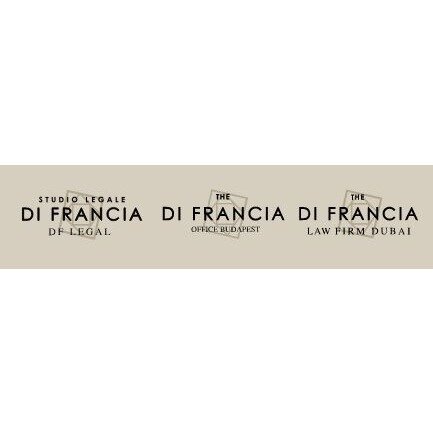Best Conveyancing Lawyers in Bologna
Share your needs with us, get contacted by law firms.
Free. Takes 2 min.
Free Guide to Hiring a Real Estate Lawyer
List of the best lawyers in Bologna, Italy
About Conveyancing Law in Bologna, Italy
Conveyancing in Bologna, Italy refers to the legal process of transferring ownership of real estate from one party to another. This process involves a series of legal and administrative steps, including preparing contracts, conducting due diligence on the property, and ensuring proper registration with local authorities. In Bologna, as in the rest of Italy, conveyancing is a highly regulated procedure that often requires the involvement of legal professionals, such as notaries and specialized lawyers, to ensure that the transfer is valid and free of legal complications.
Why You May Need a Lawyer
There are several situations where individuals or businesses may require legal help when dealing with conveyancing in Bologna:
- Purchasing or selling a residential or commercial property
- Dealing with cross-border transactions or foreign ownership issues
- Settling disputes concerning boundaries, title, or encumbrances
- Handling inheritances of real estate assets
- Navigating mortgages and loans associated with property transactions
- Ensuring compliance with local and national regulations
A conveyancing lawyer can help protect your interests, review legal documents, negotiate contract terms, and assist with the registration and transfer of property rights.
Local Laws Overview
Conveyancing in Bologna is governed by the Italian Civil Code as well as local regulations specific to the Emilia-Romagna region and the Municipality of Bologna. Here are several key aspects:
- Role of the Notary: An Italian notary is legally required to formalize property sales. The notary drafts and oversees the signing of the final deed (Rogito), checks the legality of the transaction, and ensures proper registration with the Land Registry (Catasto and Conservatoria dei Registri Immobiliari).
- Due Diligence: Thorough checks are required on the property’s title, encumbrances such as mortgages or liens, zoning permits, cadastral compliance, and energy certifications.
- Deposit and Preliminary Agreement: Typically, buyers and sellers sign a preliminary agreement (Compromesso) and the buyer pays a deposit before the final deed.
- Taxation: Property purchases are subject to taxes, including registration tax, cadastral tax, and possibly VAT, depending on the type of property and buyer status.
- Inheritance and Gifts: Conveyancing for inherited or gifted properties has additional legal requirements and potential tax implications.
- Foreign Buyers: Italy permits foreign nationals to purchase property, but certain paperwork and procedural steps must be followed, especially regarding anti-money laundering laws and taxation.
Frequently Asked Questions
What is the role of a notary in property transactions in Bologna?
The notary is a public official who ensures the legal validity of the sale, drafts the final deed, verifies the parties’ identities, checks for encumbrances, and registers the transaction with the appropriate authorities.
Can I buy or sell property in Bologna without a lawyer?
While legal representation is not strictly mandatory, it is highly advisable to consult a lawyer for contract review, due diligence, and to safeguard your interests, especially if you are not familiar with local laws and practices.
What documents are needed for property conveyancing in Bologna?
Key documents include identification for all parties, proof of ownership, cadastral information, mortgage or lien statements, energy performance certificate (APE), and any permits or authorizations relating to the property.
Are there restrictions for foreign buyers purchasing property in Bologna?
Foreigners can generally purchase property in Italy, including Bologna, but must comply with specific documentation requirements and may need a tax identification number (codice fiscale).
What taxes are due when purchasing property?
The main taxes are registration tax, cadastral tax, and possible VAT. The rate and type of tax may vary depending on whether the buyer is a private individual or a company, and whether the property is new or used.
How long does the conveyancing process take in Bologna?
The process typically takes between two and four months, depending on the complexity of the transaction, the speed of due diligence, and the efficiency of public offices.
What is the Compromesso?
The Compromesso is the preliminary sale agreement between buyer and seller. It outlines the key terms of the sale and is usually accompanied by a deposit.
Is a property inspection mandatory?
Physical inspections are not legally required but are highly recommended to verify the condition of the property and compliance with legal standards.
Who pays the notary fees and taxes?
Typically, the buyer is responsible for notary fees and taxes, though this can be negotiated between parties.
What happens after the final deed is signed?
After signing, the notary registers the deed with the Land Registry and the buyer officially becomes the legal owner. Participants receive copies of the registered deed for their records.
Additional Resources
If you need more information or assistance, the following resources and organizations can be helpful:
- Italian Notary Council (Consiglio Nazionale del Notariato) - offers guides on property transactions
- Chamber of Commerce of Bologna - provides legal and practical support for real estate matters
- Municipality of Bologna (Comune di Bologna) - property registers and local tax offices
- Law Societies and Bar Associations - professional directories for finding qualified conveyancing lawyers
- Land Registry (Catasto and Conservatoria) - public records on property ownership and encumbrances
Next Steps
If you are considering buying, selling, or otherwise transferring property in Bologna, here are the next steps you should consider:
- Gather all relevant information and documents regarding the property.
- Consult a conveyancing lawyer or notary with experience in Bologna to review your situation.
- Request a full due diligence report on the property’s legal status.
- Negotiate and review all contractual terms before signing any preliminary agreements.
- Make sure all tax and regulatory requirements are understood and planned for in advance.
- Attend the signing of the final deed with your legal and notarial representatives.
- Retain copies of all registered documents for your records.
Seeking professional legal advice ensures that your conveyancing transaction proceeds smoothly and protects your interests under Bologna’s local and national laws.
Lawzana helps you find the best lawyers and law firms in Bologna through a curated and pre-screened list of qualified legal professionals. Our platform offers rankings and detailed profiles of attorneys and law firms, allowing you to compare based on practice areas, including Conveyancing, experience, and client feedback.
Each profile includes a description of the firm's areas of practice, client reviews, team members and partners, year of establishment, spoken languages, office locations, contact information, social media presence, and any published articles or resources. Most firms on our platform speak English and are experienced in both local and international legal matters.
Get a quote from top-rated law firms in Bologna, Italy — quickly, securely, and without unnecessary hassle.
Disclaimer:
The information provided on this page is for general informational purposes only and does not constitute legal advice. While we strive to ensure the accuracy and relevance of the content, legal information may change over time, and interpretations of the law can vary. You should always consult with a qualified legal professional for advice specific to your situation.
We disclaim all liability for actions taken or not taken based on the content of this page. If you believe any information is incorrect or outdated, please contact us, and we will review and update it where appropriate.












